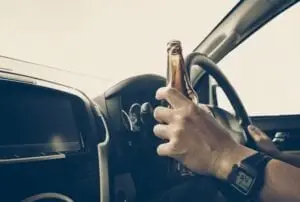
Being convicted of a DWI can result in various penalties, including the possibility of community service. Whether this is part of your sentencing depends on several factors, such as the circumstances of your case, any prior convictions, and the judge’s discretion.
If you’ve been arrested or charged with a DWI, it is crucial to consider consulting with a Houston criminal defense lawyer who can guide you through the legal process. With their advocacy, you could avoid more than community service; you could also avoid time in jail, fines, and other penalties.
You Might Have to Do Community Service After a DWI Conviction
In Texas, a DWI (driving while intoxicated) is a serious offense and can lead to severe consequences. A DWI in Texas is defined as operating a motor vehicle while under the influence of alcohol or drugs. Like all U.S. states, the legal limit for blood alcohol concentration (BAC) is 0.08%.
When it comes to community service, generally, the judge will mandate 24 hours to 100 hours, depending on the nature of your offense and other factors.
You Could Face More Than Community Service With a Conviction
Community service could be the least of your worries if you’re facing a first-time or subsequent DWI charge. For a first-time offense, you could have to spend time in jail, pay fines, and deal with restrictions on your driver’s license. Even just one of these penalties could spell trouble for your quality of life.
What’s more, once you have a DWI on your criminal record, that’s it—you can’t get it expunged. This means that the offense will be forever visible to potential employers, landlords, and romantic partners.
For a legal consultation, call 713-225-1900
What Community Service Options Do I Have?
Community service encompasses a wide range of activities. The following are some common types of community service activities you may participate in:
- Environmental cleanup, such as litter removal, park maintenance, etc.
- Volunteering at food banks, soup kitchens, or homeless shelters
- Participating in youth programs or services, such as mentoring, tutoring, etc.
- Providing senior care by visiting and assisting seniors in nursing homes
- Working in animal shelters, caring for animals, cleaning cages, walking dogs, etc.
- Volunteering for crisis hotlines, helplines, or similar support services
- Working at clinics or hospitals, providing support to patients and healthcare professionals
- Participating in restorative justice initiatives
- Volunteering at community events, festivals, and cultural programs
Mandating community service isn’t necessarily a punitive measure. The state may require volunteering as a way to satisfy court-ordered fines or in lieu of jail time. The goal is to provide a “genuine” benefit to your community and discourage you from partaking in illicit activities in the future.
A DWI Lawyer Can Challenge the State’s Case Against You
You can avoid community service by avoiding a DWI conviction. Yet, this is easier said than done––especially if you’re unrepresented. With a criminal defense lawyer, you can focus on getting your life back on track after a drunk driving arrest. They can:
- Evaluate the circumstances of your arrest
- Identify the state’s evidence
- Work with the prosecution to have your case dropped
- Explain your legal options
- Guide your case to a fair outcome
- Rely on their years of experience and resources to build your case
We may challenge your criminal charges by:
Questioning the Legality of the Stop or Arrest
If law enforcement pulled you over without reasonable suspicion, probable cause, or a valid warrant, it may affect the admissibility of evidence. If there were any other procedural errors committed during the arrest, such as failure to read your Miranda rights or improper search and seizure, it could undermine the prosecution’s case.
Challenging Breathalyzer or Blood Test Results
Another defense strategy is to challenge the accuracy of the breathalyzer or blood test results by questioning the maintenance and calibration of the device. If you have any medical conditions that could have affected your test’s outcome, we can argue to have any results disregarded.
Additionally, your defense attorney can challenge the training and qualifications of the police officer who conducted your tests. They will likewise examine the chain of custody of any blood or urine samples that may have compromised the integrity and admissibility of your test results.
Challenging Field Sobriety Tests
The accuracy and reliability of field sobriety tests can also be contested. These are subjective and may be influenced by various factors, including the police officer’s interpretation, adverse weather conditions, your physical condition, and others.
Arguing That Your Impairment Was Not Due to Alcohol or Drugs
Your defense attorney could demonstrate that your impairment was not related to alcohol or drug use. This can be done by providing evidence of alternate causes for your behavior, such as fatigue, illness, or a medical condition. They may also consult with expert witnesses who can further support your case by testifying in your defense.
Challenging Witness Credibility
The credibility, conduct, and testimony of the prosecution’s witnesses can be challenged through cross-examination. Your defense attorney may point out any ambiguity or inconsistencies in their statements or call other witnesses who can offer another perspective that can support your case. In doing so, the reliability of the prosecution’s witnesses can be called into question, and their arguments against you may be compromised.
Click to contact our Houston lawyer today
Attorney Jay Blass Cohen Can Protect Your Legal Rights
Keep in mind that DWI laws and penalties are subject to change, so it’s important to get the most current and accurate information from a legal professional familiar with DWI laws in Texas. To have a chance of beating a DWI or minimizing the penalties, you are urged to consult with a criminal defense lawyer.
Founder of Blass Law, Attorney Jay Blass Cohen, is certified as an ACS-CHAL Forensic Lawyer-Scientist and in forensic chromatography for both alcohol and drugs. He will do everything possible to secure a “not guilty” verdict. Call now to start your initial consultation.
Call or text 713-225-1900 or complete a Case Evaluation form



